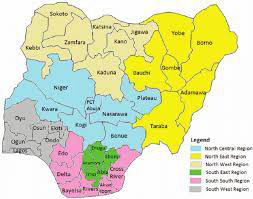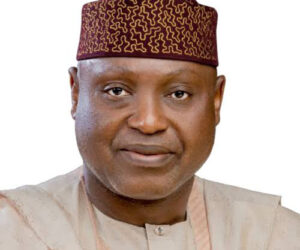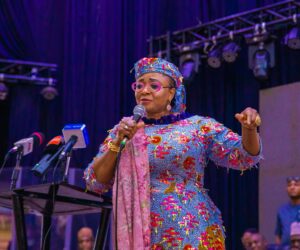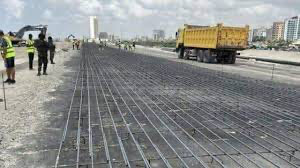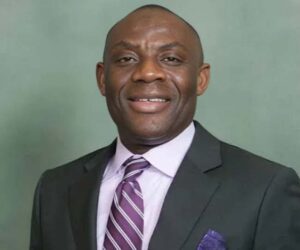1
This essay is inspired by a conversation with Dare Babarinsa, the esteemed veteran journalist, author, and chairman of Gasikiya Media. It examines the relationship between Nigeria and Cameroon, emphasising that true leadership is judged not just by a nation’s capabilities but also by its discernment in recognising what must not be overlooked.
Cameroon, Nigeria’s immediate neighbour to the east, once again teeters on the edge of crisis. The fragile, timeworn balance that has long held the nation together is exhibiting perilous fissures, and the tremors are already resonating along Nigeria’s borders. For too long, we have regarded Cameroon’s political unrest as merely a domestic matter of a sovereign state. However, it is not solely theirs; it is a concern that spans across West and Central Africa—and, more critically, a matter that intimately affects Nigeria. It bears upon our security, our economy, and our moral standing within the region.
Cameroon’s latest political upheaval follows the contentious outcome of its October 2025 presidential election. Opposition leader Issa Tchiroma Bakary, denouncing what he describes as a “stolen victory,” has called for a three-day period of protests, from November 3rd to 5th, transforming major cities such as Yaoundé, Douala, Bafoussam, and Garoua into virtual ghost towns. Reports speak of clashes, arrests, and tragic loss of lives amid the unrest. President Paul Biya’s administration, in power for over forty years, remains steadfast in its stance, even as the erosion of domestic trust and rising international concern cast a shadow over his tenure.
This is not just an isolated political drama. It is a continuation of years of dissatisfaction with governance, corruption, regional inequalities, and the government’s harsh response to dissent. Also contributing are unresolved grievances in the Anglophone regions, economic stagnation, and youth unemployment. In short, Cameroon is a nation simmering with frustration — and now, the pot is near boiling over.
Why should Nigeria be more concerned than others? Nigeria borders Cameroon along a span of over 1,600 kilometres—a boundary that weaves through rivers, forests, and villages, where families, trade routes, and histories intertwine on both sides. The instability within Cameroon is not merely a distant rumour; it manifests as a ripple that eventually surges onto Nigerian soil.
Already, thousands of Cameroonian refugees fleeing the Anglophone conflict have sought sanctuary in Cross River, Taraba, Benue, and Adamawa states. A resurgence of unrest would not only swell these numbers but also deepen the complexity of humanitarian efforts. Refugee influxes bring with them not only displaced populations but also health challenges, competition for limited resources, and, at times, infiltration by non-state actors.
From a security standpoint, Nigeria cannot afford to have another unstable neighbour. The porous borders between Nigeria and Cameroon have historically served as conduits for smuggling, arms trafficking, and insurgent activities. Groups like Boko Haram and ISWAP have taken advantage of the challenging terrain of the Mandara Mountains along this border. A deteriorating situation in Cameroon could easily transform these corridors into broader zones of lawlessness, thereby undermining the fragile security progress made in Nigeria’s northeast.
Economically, Cameroon is an integral part of Nigeria’s natural trading landscape. Nigerian entrepreneurs actively participate in markets across Cameroon, from the bustling ports of Douala to the highlands of Bamenda. Additionally, Cameroon offers vital access to the Gulf of Guinea, a region of increasing strategic importance. Any disruptions within Cameroon could ripple through Nigeria’s trade routes, foreign exchange earnings, and regional logistical networks.
History offers stark warnings. Nigeria has encountered similar patterns before — in Liberia, Sierra Leone, and Chad. Our past inattention has led us to be drawn into conflicts at greater costs, both militarily and economically. We also understand the moral toll of silence. Nigeria once took a prominent role in peacebuilding and mediation across Africa — from the days of ECOWAS Monitoring Groups (ECOMOG) to diplomatic efforts in Sudan and South Africa, culminating in the dramatic solitary intervention in São Tomé by Olusegun Obasanjo. To observe Cameroon deteriorate without Nigeria’s leadership would be to forsake that proud tradition of regional statesmanship.
Furthermore, our shared colonial and cultural history forges bonds more profound than geographical boundaries. Nigeria’s eastern communities — especially those in Cross River and the former Eastern Region — maintain deep linguistic, familial, and commercial links with Cameroon. These relationships mean that the developments in Yaoundé and Bamenda resonate within Calabar and Ikom.
There exists, therefore, a moral and strategic necessity for Nigeria’s foreign policy to evolve beyond mere slogans of non-interference and embrace a stance of principled engagement. The objective should not be to align with any particular side, but rather to safeguard Nigerian interests and regional stability. This can be realised through a blend of discreet diplomacy, mediation, and developmental collaboration.
Nigeria ought to take a leadership role within the African Union (AU), ECOWAS, and other regional partners to foster dialogue between the government and opposition factions. Additionally, Abuja could initiate a Joint Nigeria–Cameroon Stability and Development Forum, with an emphasis on governance reform, youth employment, and cross-border infrastructure development.
Furthermore, it is essential to recognize the importance of fostering democratic mentorship. Nigeria’s burgeoning network of think tanks, universities, and leadership institutions can serve as vital conduits for educating young Cameroonians—both within government and civil society—in the principles of democratic governance and conflict resolution. This is not an interference; it is a gracious investment in the stability of the region.
Let us proceed with caution, though; Nigeria must navigate these waters with finesse. Our goal should not be to lecture or impose, but to listen, comprehend, and lead with integrity. Rushing to take a partisan stance could estrange vital partners in Cameroon and diminish Nigeria’s influence. Instead, a subtle diplomatic approach — grounded in moral authority and regional consensus — will best serve our interests.
Ultimately, the stakes extend beyond Cameroon’s stability to encompass the very quality of life across the borderlands of West and Central Africa. A peaceful Cameroon heralds safer borders, flourishing trade, and the reinforcement of democratic ideals. Conversely, a chaotic Cameroon portends increased refugee flows, insecurity, and squandered opportunities.
Nigeria’s leaders, diplomats, and thinkers must recognise that silence is not neutrality—it is abdication. The strength of a great nation lies not solely in defending its borders but also in shaping peace beyond them.
If Nigeria aspires to assume a leadership position across the continent, now is the opportune moment to proceed with serenity, sagacity, finesse, and bravery. Ultimately, Nigeria’s interests in Cameroon should be carefully discerned and strategically safeguarded, transforming these interests into a sincere investment in the nation’s collective future.
Join me, @anthonykila, if you can, to continue these conversations.
Anthony Kila is a Jean Monnet Professor of Strategy and Development at the Commonwealth Institute for Advanced and Professional Studies


